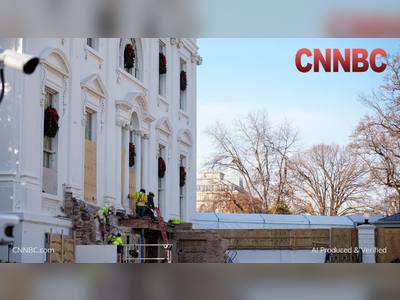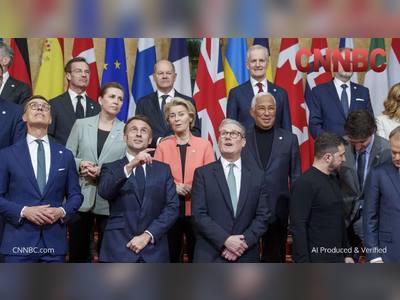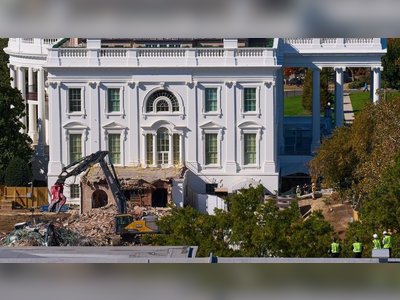Former White House Physician Questions Details of Trump’s MRI and Health Report
Ex-presidential doctor urges transparency after Trump calls MRI results 'perfect' amid growing scrutiny over his health
A former White House physician who served under three U.S. presidents has questioned the lack of clarity surrounding President Donald Trump’s recent medical visit to Walter Reed National Military Medical Center, where he reportedly underwent an MRI scan.
Dr. Jeffrey Kuhlman, who worked under Presidents Bill Clinton, George W. Bush, and Barack Obama, said the official account provided by Trump’s team left major gaps and warranted further explanation.
Trump, now 79, revealed on October 27 that he had undergone an MRI earlier in the month, describing the results as “perfect.” The White House issued a brief medical memo days before his remarks, declaring the president in “exceptional health” but offering no details about the scan or what prompted it.
The note emphasized that Trump’s “cardiac age” was fourteen years younger than his actual age, but did not elaborate on any other findings.
Kuhlman told reporters that the duration and nature of the visit raised questions.
“It’s about an eight-minute helicopter ride from the South Lawn to Walter Reed.
So we know that he at least had four hours available to undergo medical care.
There’s a disconnect there,” he said.
The doctor added that advanced imaging such as MRIs are rarely part of standard check-ups and typically suggest a more specific medical concern.
Medical experts have echoed the call for greater transparency.
Jacob Appel, a psychiatrist at Mount Sinai, noted that without context, the information released offers little value.
“If you’re going to say that you’re having an MRI, we should know what the MRI is for,” he said.
He explained that such scans can be used to assess a wide range of issues, from cognitive health to cardiovascular conditions.
The episode has revived debate over Trump’s fitness for office and the communication strategy surrounding his health.
While the White House insists that the president remains in robust condition, observers point out that past reports of chronic venous insufficiency and recurring bruising have raised legitimate medical interest.
Analysts argue that, for a sitting president, transparency is not just a matter of privacy but of public trust.
Kuhlman concluded that the selective disclosure of medical information only fuels speculation.
“If you’re going to release some information, you should release enough for the public to understand it in context,” he said.
For now, the president’s health remains both a matter of political significance and public curiosity as his administration maintains that all findings point to “exceptional health.”
Dr. Jeffrey Kuhlman, who worked under Presidents Bill Clinton, George W. Bush, and Barack Obama, said the official account provided by Trump’s team left major gaps and warranted further explanation.
Trump, now 79, revealed on October 27 that he had undergone an MRI earlier in the month, describing the results as “perfect.” The White House issued a brief medical memo days before his remarks, declaring the president in “exceptional health” but offering no details about the scan or what prompted it.
The note emphasized that Trump’s “cardiac age” was fourteen years younger than his actual age, but did not elaborate on any other findings.
Kuhlman told reporters that the duration and nature of the visit raised questions.
“It’s about an eight-minute helicopter ride from the South Lawn to Walter Reed.
So we know that he at least had four hours available to undergo medical care.
There’s a disconnect there,” he said.
The doctor added that advanced imaging such as MRIs are rarely part of standard check-ups and typically suggest a more specific medical concern.
Medical experts have echoed the call for greater transparency.
Jacob Appel, a psychiatrist at Mount Sinai, noted that without context, the information released offers little value.
“If you’re going to say that you’re having an MRI, we should know what the MRI is for,” he said.
He explained that such scans can be used to assess a wide range of issues, from cognitive health to cardiovascular conditions.
The episode has revived debate over Trump’s fitness for office and the communication strategy surrounding his health.
While the White House insists that the president remains in robust condition, observers point out that past reports of chronic venous insufficiency and recurring bruising have raised legitimate medical interest.
Analysts argue that, for a sitting president, transparency is not just a matter of privacy but of public trust.
Kuhlman concluded that the selective disclosure of medical information only fuels speculation.
“If you’re going to release some information, you should release enough for the public to understand it in context,” he said.
For now, the president’s health remains both a matter of political significance and public curiosity as his administration maintains that all findings point to “exceptional health.”












